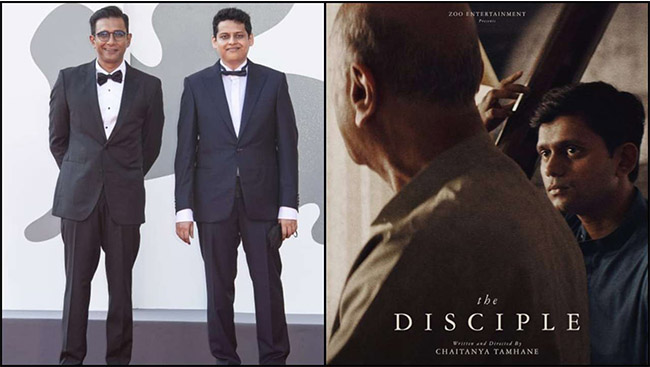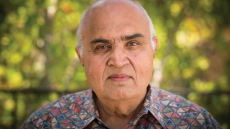“I’m waiting for the new world to emerge after the pandemic, know what the rules will be. My next story will likely emerge from that scenario.”
Maharastrian filmmaker Chaitanya Tamhane has had a year. His second feature, The Disciple, not only found its way to the Toronto and Venice Film Festivals, it won Best Screenplay at the latter and was acquired by Netflix. It premiered on the streaming platform at the end of April to widespread acclaim (97% score in Rotten Tomatoes).
The film, executive produced by four-time Oscar winner Alfonso Cuarón, is a drama set in the world of Indian classical music. The Disciple chronicles the journey of one Sharad Nerulkar (newcomer Aditya Modak), an ambitious vocalist aiming to become the best in his field and meet the expectations of his guru. As years go by and the recognition he craves fails to materialize, Sharad begins to wonder if the path he has chosen leads to fulfillment or never-ending despair.
The Disciple pokes holes at the relationship between guru and apprentice and wonders how healthy it is to go through life without questioning authority. The roots of the film go back to a play Chaitanya wrote and directed in Denmark that tackled a similar subject: “The conflict of an artist who understands what it is to be good but can’t get there and has to live with that realization is something that has stayed with me.” Stories about secret knowledge and lost books helped the filmmaker shape the idea into a script.
While Cuarón has acted as a mentor for Chaitanya, at no point he interfered with his voice or creative choices: “His biggest contribution was helping to put the film out there. Having his name associated with The Disciple has made a lot more people take notice.” Cuarón also provided feedback at the scripting and editing stages and recommended the cinematographer Michal Sobocinski to Chaitanya.
Based on his success in the festival circuit and in Netflix, one could argue Chaitanya has made the most of his time during the pandemic, but working on something new has been challenging: “You can’t do research, you can’t go out, you can’t absorb the world, which is my source of raw material. I’ve found myself losing motivation up because of the carnage unfolding in India right now. So much sadness, so much despair.” In these dire circumstances, Chaitanya can only sit back and observe: “I’m waiting for the new world to emerge after the pandemic, know what the rules will be. My next story will likely emerge from that scenario.”

Q & A with Chaitanya Tamhane
Do you see any parallels between Sharad’s path and your own career as a filmmaker?
Absolutely. This film comes from a very personal space. The nightmare of not being good enough haunts me because I’ve made certain choices in my life. I’ve made sacrifices, while not anywhere close to the rigor and discipline of Sharad. Telling yourself a story only to find out that story doesn’t have much ground is a scary thought for me.
The film has a climatic flashback that pits a disparaging music critic against an unwavering Sharad. Which character’s worldview is closer to yours?
It’s a mix of both. An artist has to be a romantic and an optimist and has to indulge in the excesses of the art form to be able to create. At the same time, you can’t be delusional, you’ve to be objective and strive for the truth. I should say Sharad has a bit of the critic in him and vice-versa. People are nuanced, not binary.
What do you think Westerners get wrong about classical Indian music?
Music is a language and there are people that are apathetic or resistant to the idea of being exposed to a new language or art form. Also, certain Western audiences have an idea of India in their mind and the story of an Indian musician wrestling with self-actualization feels an alien concept. By large, those who are more open, curious and tolerant have found themselves immerse in a whole new universe of stories, nuances, contradictions and complexities that are very specific to the Indian milieu, and have found great value in drawing parallels and comparison with their own musical tradition and their society in general.




